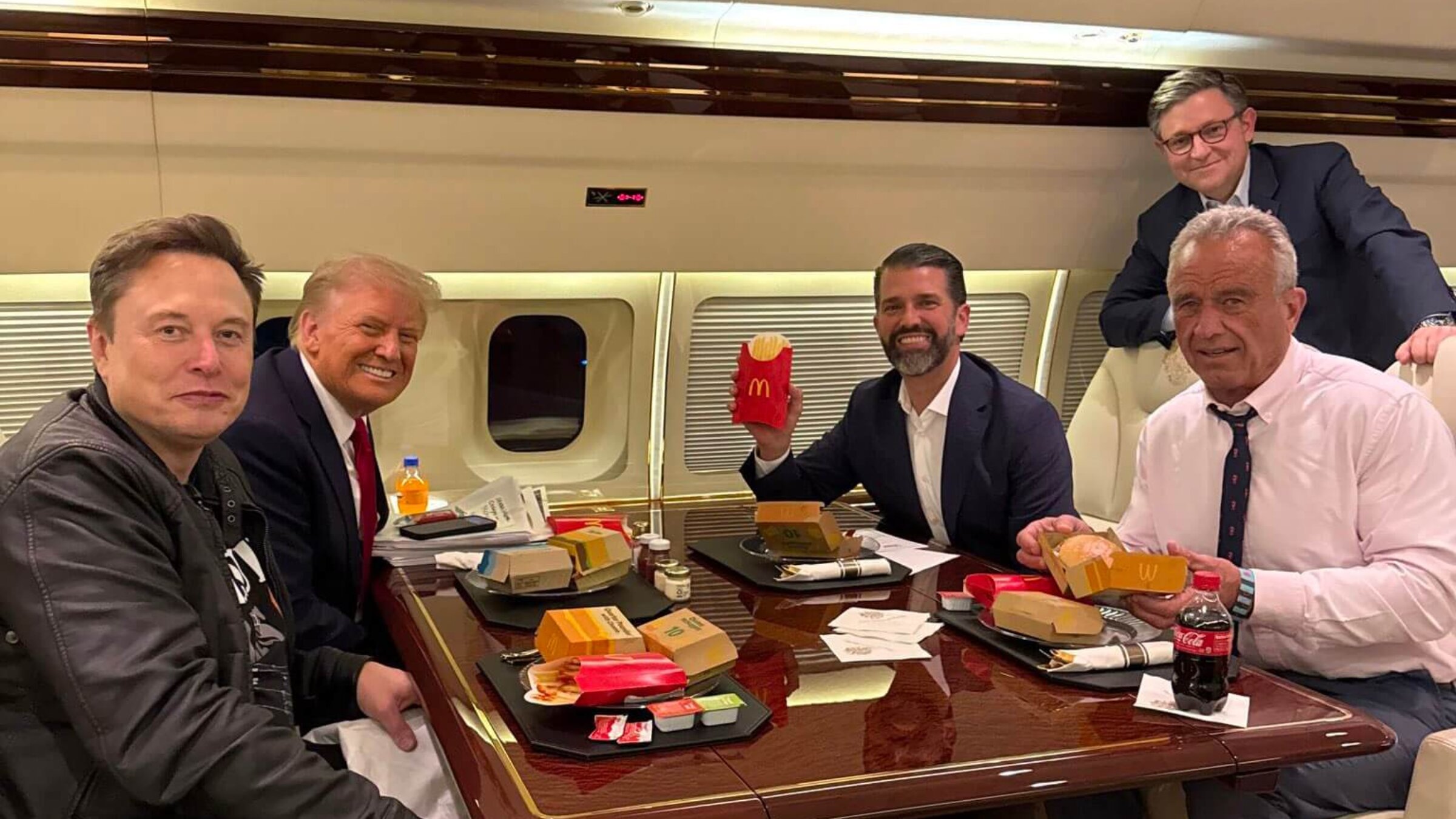Is RFK about to ban goyslop — and what on earth is that?
Online, an antisemitic term for low-quality food has gone mainstream in the wake of RFK’s war on Big Food

Trump and some of his newly appointed leaders — Elon Musk and RFK Jr. — eating McDonald’s. Courtesy of X
Robert F. Kennedy Jr. famously hates vaccines, and also corn syrup, food dyes and seed oils. Instead, he believes in raw milk, beef tallow and defluoridating the nation’s water supply. Trump has named him to lead the Department of Health and Human Services, and RFK has vowed to take on Big Food and Make America Healthy Again (MAHA).
So upon the emergence of a viral publicity photo of RFK sitting down to a McDonald’s meal alongside Trump, his son Don Jr., Elon Musk and Mike Johnson, people were confused. After all, McDonald’s is the epitome of what online commentators call “goyslop.”
Or sorry, wait — maybe it’s ZOGchow. Or ZOGslop? A debate is underway on the social platform X (formerly Twitter) as to which term best describes McDonald’s. But whichever term the online debaters decide is the correct one for a Big Mac, it has something to do with the Jews.
Goyslop is an antisemitic meme term for fast food and other unhealthy, mass-produced snacks. It implies that low-quality food is made cheaply and easily available by Jewish elites to keep the rest of the world unhealthy and under their control. (ZOGslop means more or less the same; ZOG stands for “Zionist Occupied Government.”) In case the term’s antisemitic undertone wasn’t already obvious enough, there’s also a meme circulating depicting Hasidic men feeding pigs and obese white men wearing red baseball hats at the same trough.
The term has expanded beyond food to include media and entertainment. If fast food is rotting our bodies, trashy TV is rotting our brains. It’s all goyslop, in the name of control by some shadowy cabal of elites, trying to keep the everyman down.
It isn’t surprising that there’s an antisemitic undercurrent in the world of wellness, which is full of baseless theories. There’s the carnivore diet, which teaches that vegetables are somehow unhealthy despite the fact that humans have been consuming plants since we evolved into existence. There’s suspicion of sunscreen — some alternative health influencers insist it’s more cancerous than a sunburn and argue that it blocks essential nutrient absorption — and of Wi-Fi, which supposedly causes any of a wide range of ailments.
Like many conspiracies, the idea of goyslop has a grain of truth to it: Large corporations profit off of making cheap, low-nutrition food, and some studies have found that sugary, fatty foods can be addictive. There’s an element of control there — companies want consumers to keep consuming their product, and making it addictively delicious and readily available is a great way to do so. And it’s true that food is less regulated in the U.S. than in many other countries. But there’s no larger conspiracy or nefarious aim beyond, well, profiting off of cheap burgers.
The term finding sudden mainstream purchase in the wake of the photo of RFK with a McDonald’s meal reflects an increasing boldness on the part of conspiracy theorists in the wake of Trump’s election win. But the goyslop conspiracists don’t necessarily like Trump; his love for fast food and soda is well known, and they look down on him for his diet.
As the term becomes mainstream, however, its use also becomes increasingly humorous, with many people using the term to poke fun at the conspiracy theorists.
“Enjoy your goyslop while you still can,” reads one tweet, along with a photo of a Taco Bell meal. A commenter agreed: “Come get my cheesy gordita crunch out of my cold dead hands.”
A message from our CEO & publisher Rachel Fishman Feddersen
I hope you appreciated this article. Before you go, I’d like to ask you to please support the Forward’s award-winning, nonprofit journalism during this critical time.
We’ve set a goal to raise $260,000 by December 31. That’s an ambitious goal, but one that will give us the resources we need to invest in the high quality news, opinion, analysis and cultural coverage that isn’t available anywhere else.
If you feel inspired to make an impact, now is the time to give something back. Join us as a member at your most generous level.
— Rachel Fishman Feddersen, Publisher and CEO